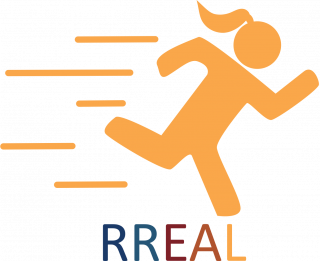This page provides more information about our inspiration and what we are reading now.

Our inspiration
Agyepong, Irene Akua, Bertha Aryee, Helen Dzikunu and Lenore Manderson. 1994. The malaria manual: Guidelines for the rapid assessment of social, economic and cultural aspects of malaria.
Scrimshaw S, Hurtado E. Anthropological involvement on the Central American diarrheal disease control project. Social Science and Medicine 1988;27(1):97-105.
Utarini A, Winkvist A, Pelto G. Appraising studies in health using rapid assessment procedures (RAP): Eleven critical criteria. Human organization 2001;60(4):390-400.
Trotter, Robert T. and Richard H. Needle. 2000. RARE project: Field assessment training methods workbook.
Knoblauch H. Focused ethnography. Forum: Qualitative Social Research 2005;6(3).
McNall M, Foster-Fishman P. Methods of Rapid Evaluation, Assessment, and Appraisal. American Journal of Evaluation 2007;28(2):151-168.
Pink S, Morgan J. Short-term ethnography: Intense routes to knowing. Symbolic Interaction 2013;36(3):351-361.
Beebe J. Rapid Qualitative Inquiry. Second ed. London: Rowman and Littlefield; 2014.
Abramowitz, Sharon Alane, Kristen, E. McLean, Sarah, Lindley McKune, Kevin, Louis Bardosh, Mosoka, Fallah, Josephine, Monger, Kodjo, Tehoungue, Patricia, A. Omidian, 2015. Community-centered responses to Ebola in urban Liberia: the view from below. PLoS Negl. Trop. Dis. 9 (4), e0003706.
What we are reading now
Baggio, Ombretta, Cheick Abdoulaye Camara, and Christine Prue. 2019.
Bringing community perspectives to decision-making in the Ebola response in the Democratic Republic of Congo. https://odihpn.org/magazine/bringing-community-perspectives-decision-making-ebola-response-democratic-republic-congo/“Rapid and regular collection of community perspectives and social science analysis can help inform responders about community concerns, priorities and needs at all stages of the response.”
Camilleri M, Gogolishvili D, Giliauskas DL, Globerman J, Wilson M. Evaluation of an HIV-specific rapid response service for community-based organisations in Ontario, Canada. Heal Res Policy Syst 2019;17(1):80. Available from: https://doi.org/10.1186/s12961-019-0476-4
Gale RC, Wu J, Erhardt T, Bounthavong M, Reardon CM, Damschroder LJ, et al. Comparison of rapid vs in-depth qualitative analytic methods from a process evaluation of academic detailing in the Veterans Health Administration. Implement Sci 2019;14(1):11. Available from: https://doi.org/10.1186/s13012-019-0853-y
Jayawardane, M. (2019). The capacity-building-workshop-in-Africa Hokum. Journal of African Cultural Studies, 31:3, 276-280, DOI: 10.1080/13696815.2019.1630265
Reynolds, J., Lewis, S. (2019). Ethnography and evaluation: Temporalities of complex systems and methodological complexity. Anthropology & Medicine https://www.tandfonline.com/doi/abs/10.1080/13648470.2018.1507106
Armstrong, A. Lowndes, R. Creative Teamwork: Developing Rapid, Site-Switching Ethnography. Oxford University Press; 2018.
 Close
Close


